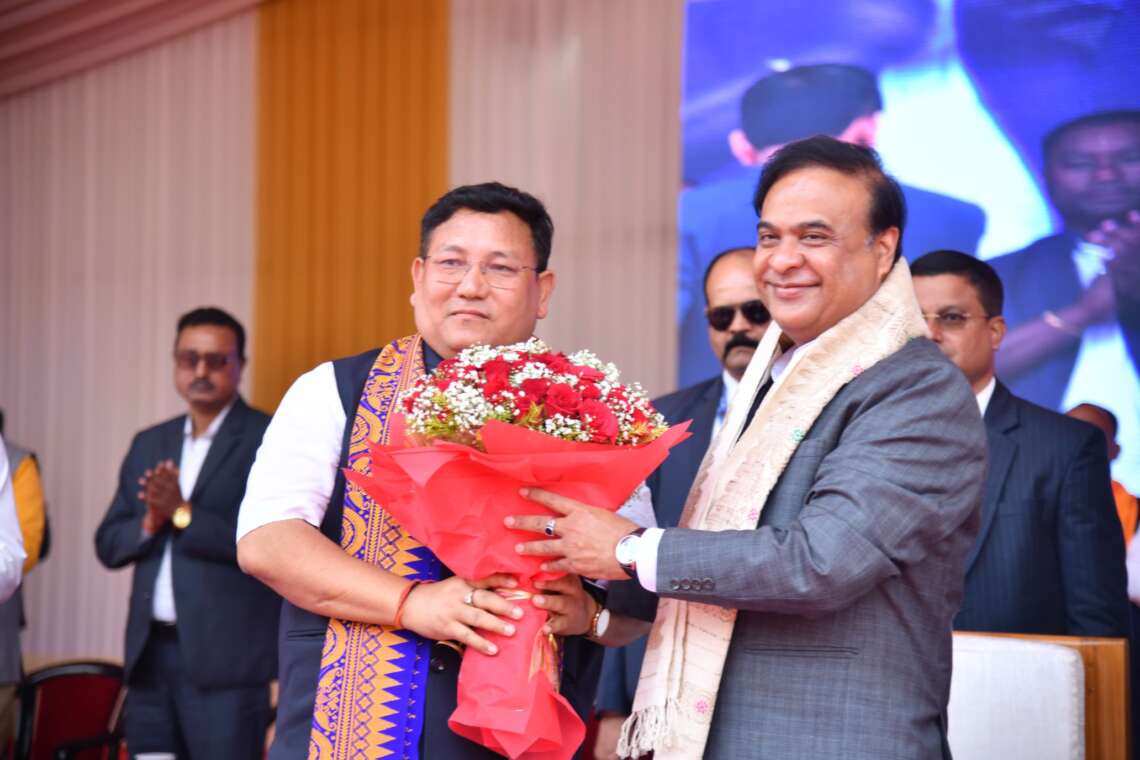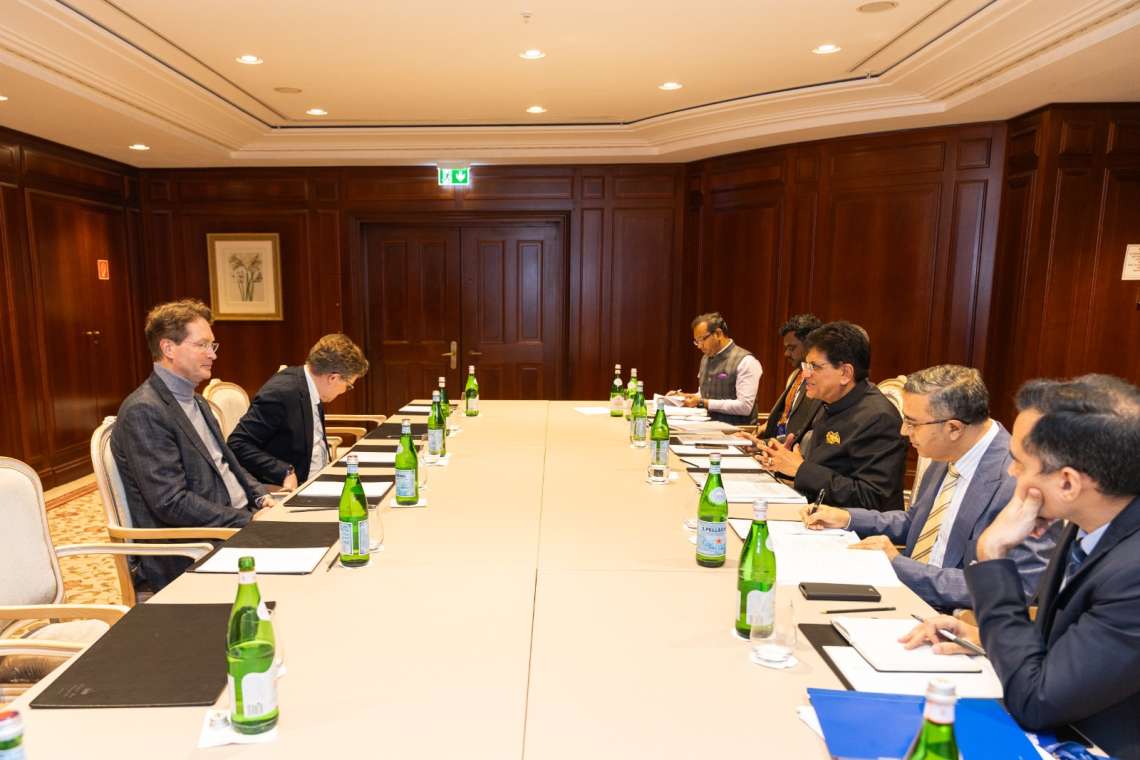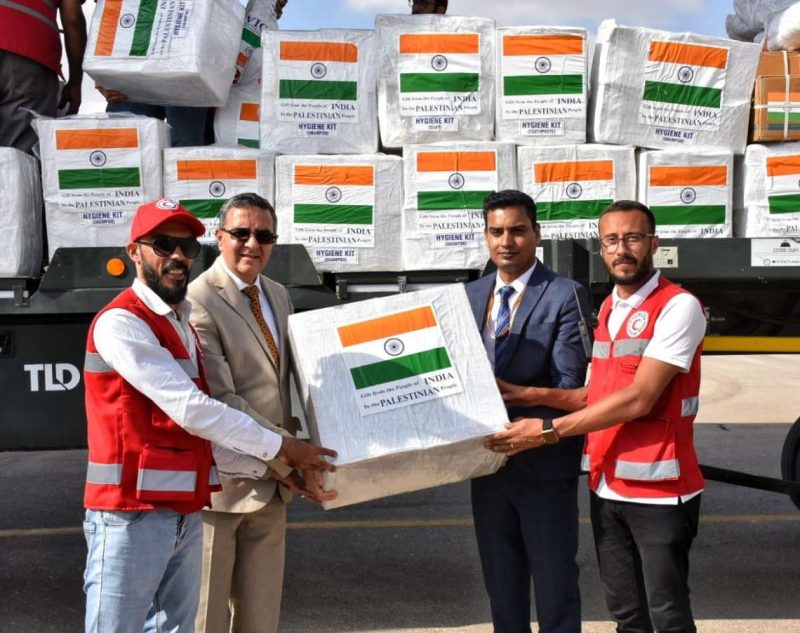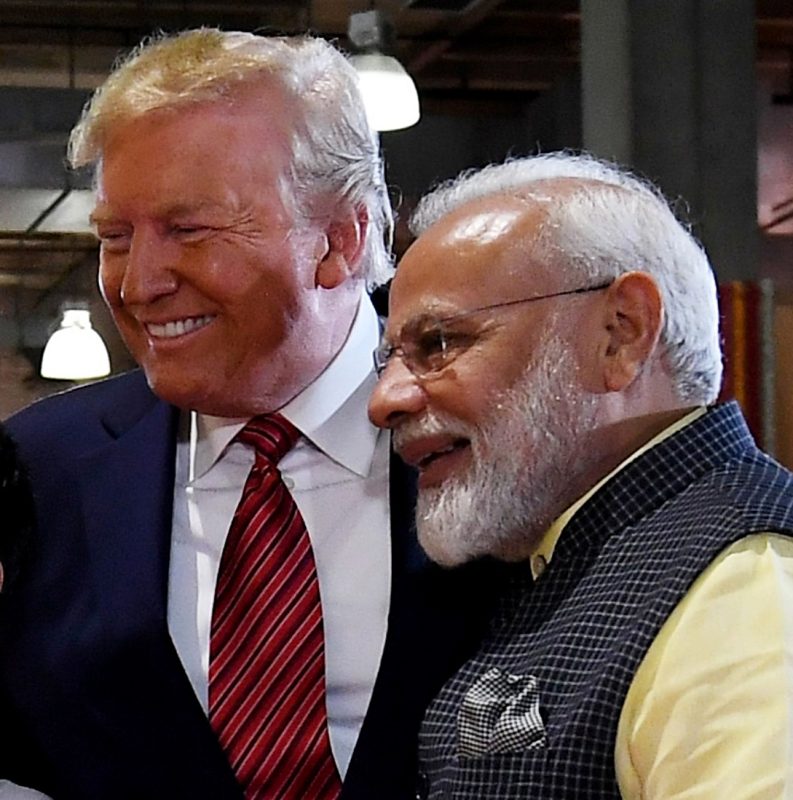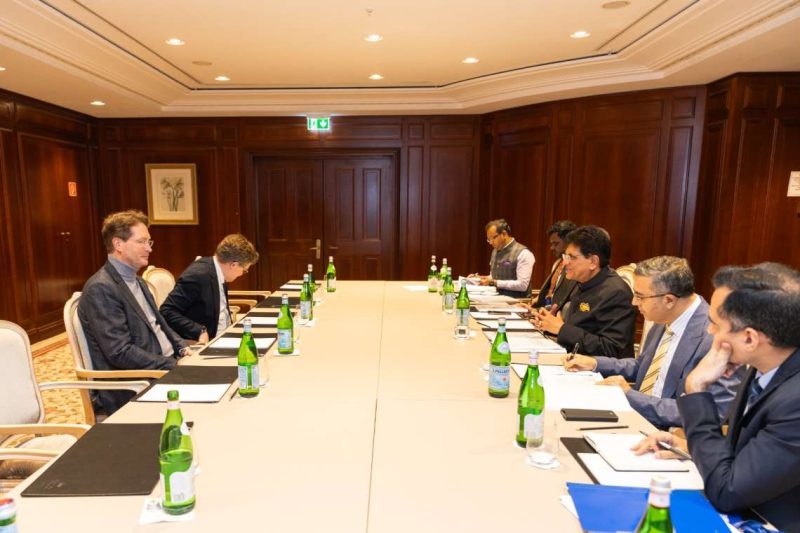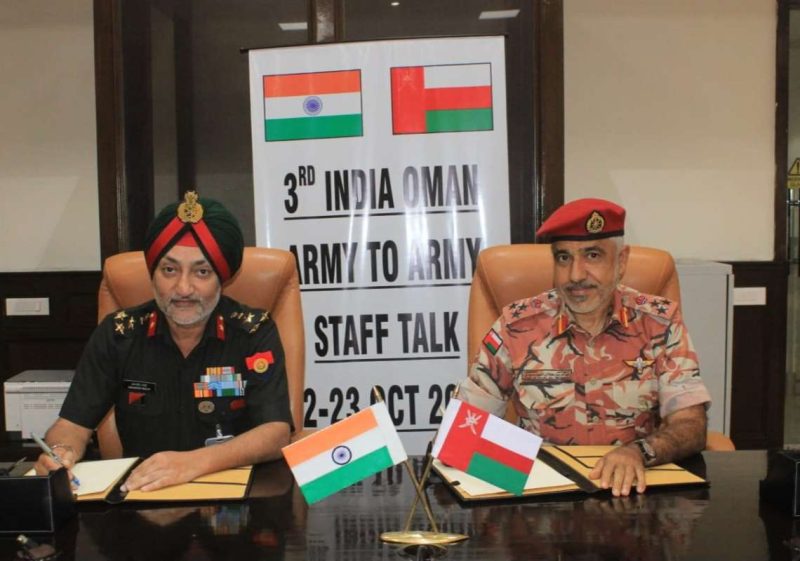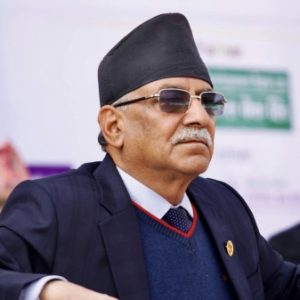Sarma accentuated BTR’s profound transformation from a legacy of strife and turbulence to an emblem of enduring peace, resilience, and transformative progress….reports Ashok Parameswar
On the occasion of the 5th anniversary of the BTR Accord, Assam Chief Minister Himanta Biswa Sarma expressed optimism about the proposed 125th Constitutional Amendment, emphasising the Indian government’s active efforts toward its implementation. Highlighting its significance, he described the amendment as crucial for Assam’s continued progress.
In the context of Bodoland, inclusion under Article 280 would potentially allow the region to receive a greater share of central funds, supporting its development and recovery from past conflicts.
Detailing Assam’s transformation into a hub for semiconductors and new energy, Sarma showcased the state’s significant strides over the past 3.5 years. These achievements include the creation of 1.5 lakh government jobs without legal disputes, the preparation of 55,000 additional appointment letters, and major advancements in power and employment sectors. Additionally, the successful rehabilitation of 7,000 individuals from forest areas has promoted inclusive growth.
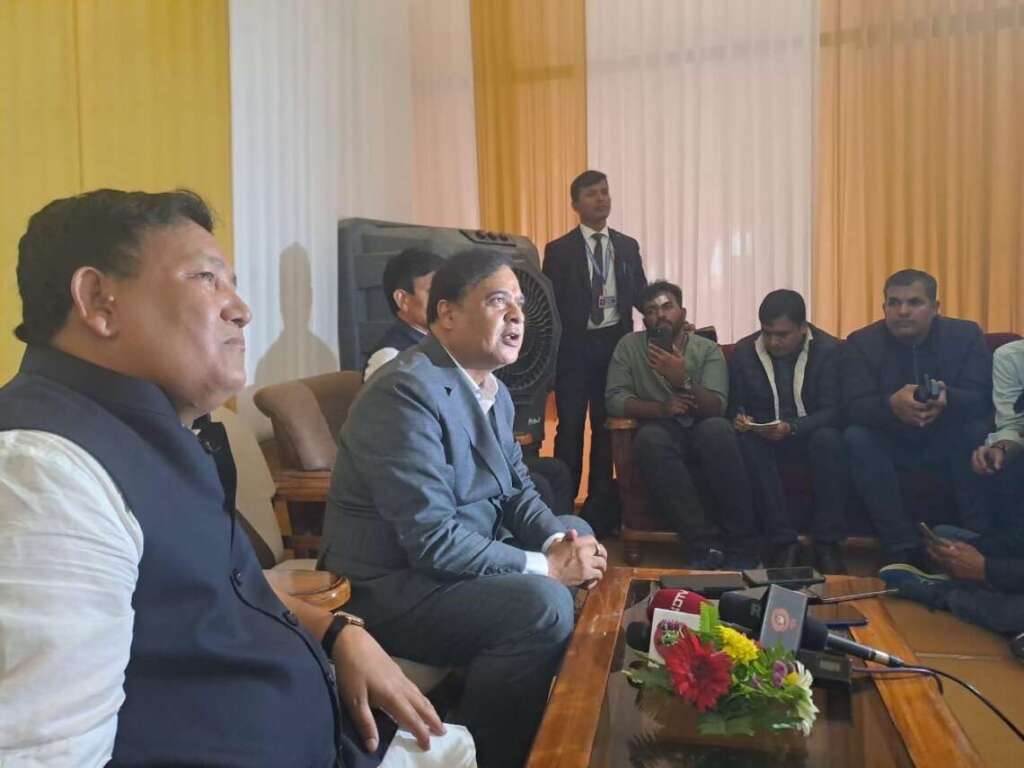
Discussing ongoing discussions with the Government of India to establish a defence corridor, Sarma conveyed confidence in Assam securing this vital development. Reflecting on the remarkable transformation of the Bodoland Territorial Region (BTR), he articulated the region’s journey from a history marked by violence and unrest to one now symbolizing peace and progress. Events like the Durand Cup, Santosh Trophy, and international football matches, including the Oman Football Competition, stand as testaments to this positive change.
The development of BTR has been driven by collaborative efforts between the Modi government, the state government, and BTR authorities. Sarma underlined the resolution of the long-standing divide between Bodo and non-Bodo communities, paving the way for sustained progress across both BTR and Assam.
Addressing budget concerns, Sarma reaffirmed his commitment to self-reliance, noting the growth of Assam’s budget from Rs 80,000 crore to Rs 1.5 lakh crore during his tenure without external aid. He assured continued support for BTR’s development through key infrastructure projects such as bridges, roads, and a railway line from Guwahati to Bhutan, which will reduce travel time to just two hours.
Efforts to attract businesses to BTR, once hindered by the region’s violent past, have gained momentum under Prime Minister Modi’s leadership. Key industrial projects include the expansion of a refinery to 5 million metric tons and the establishment of a railway coach manufacturing factory.
On employment, Sarma highlighted ongoing recruitment efforts for CAPF and Agniveer in BTR, focusing on creating opportunities for youth from militancy-affected areas and Scheduled Tribes. Additionally, he announced a Rs 150 crore investment for a new sports stadium, showcasing the growing collaboration between BTR, the state, and the central government.
Regarding governance, Sarma clarified that the state government refrains from interfering in BTR’s internal affairs, except for policing. While BTR holds full taxation authority, it opts to receive a share from the consolidated fund, ensuring better financial support due to lower direct tax collections.
Addressing concerns about militant regrouping efforts and potential threats from Bangladesh, Sarma assured that Assam’s unity and commitment to peace would counter such challenges. He emphasised the state’s vigilance along the porous Brahmaputra River, with advanced monitoring systems enabling the BSF to capture infiltrators daily.
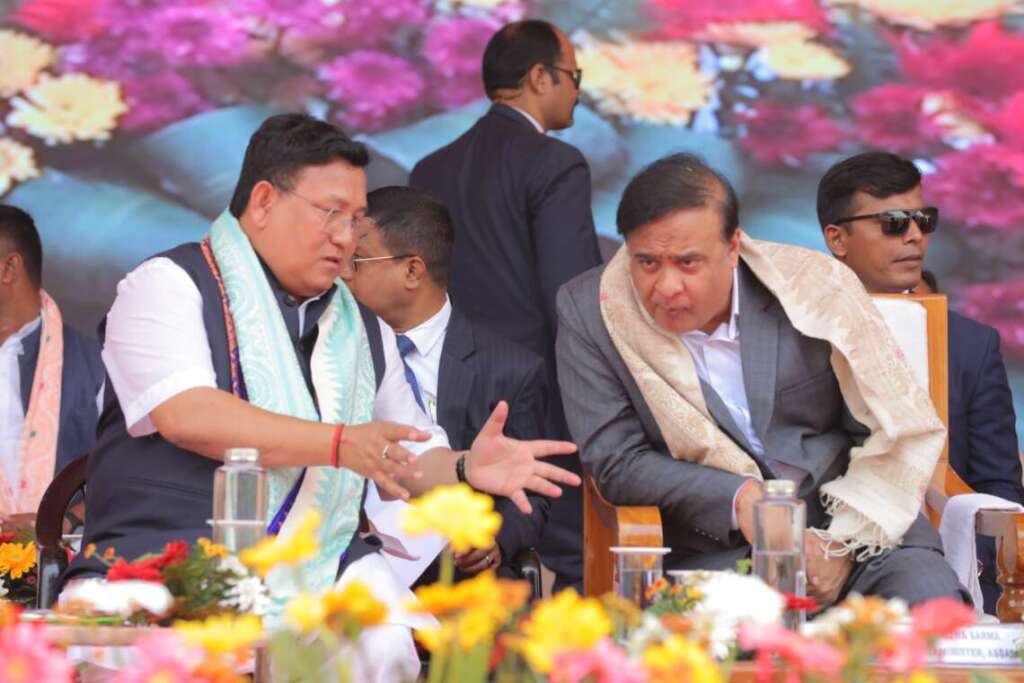
Ongoing development initiatives include the establishment of a Hindustan Petroleum campus, refinery expansion, and the construction of a BSF ordinance factory. The foundation for a new university has been laid, and BTR now boasts two medical colleges and three universities, reflecting significant progress in education.
Finally, addressing China’s construction of a dam on the Brahmaputra, Sarma confirmed that the Indian government is managing the matter diplomatically. While expressing concerns over potential environmental impacts, he remained hopeful for a diplomatic resolution through ongoing talks between India and China.
ALSO READ: Modi accepts Macron’s invite to attend AI Summit
ALSO READ: Congress Calls Budget ‘A Band-Aid For Bullet Wounds’


